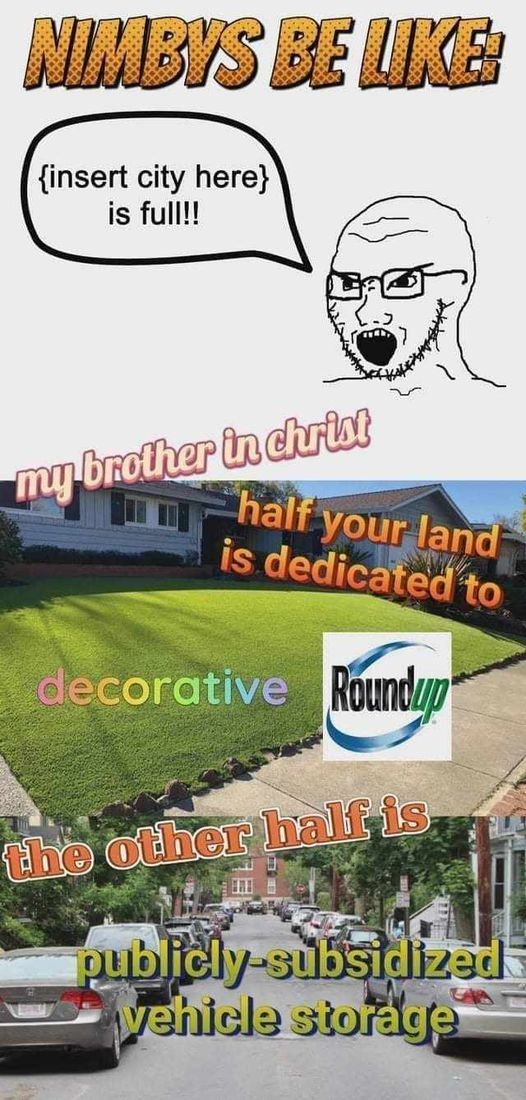#nimbi
Explore tagged Tumblr posts
Text



Souls from the postgame have come down to take part in the Spikers League! Nimbis are quick and can easily weave between attacks, Shaydes can dip into the shadows to become traps that slow opponents down, and Skellobits have a long spear that can stab and freeze enemies!
#mario#super mario#mario fanart#super mario fanart#paper mario#paper mario fanart#super paper mario#super paper mario fanart#spm#spm fanart#underwhere#the underwhere#overthere#the overthere#nimbi#shayde#skellobit#Super Mario Spikers
7 notes
·
View notes
Text


The finale of the Hudson fic is close upon us! So I might as well spoil what happens for people who don't wanna read a near whooping 50 chapters.
Bonechill, previously the end boss of Chapter 7 in Super Paper Mario, got promoted all the way to final boss and more heavily involved with the plot. (Sorry to all Dimentio fans, but I thought it would be more enjoyable to change it up)
So I drew Bonechill's "previous form" before he fell, which is his primary motivation. Dawnbi, the Nimbi!
Oh, and I also drew Furricane with his tornado coat thing opened up…
3 notes
·
View notes
Text

Tippi from Super Paper Mario (in her Super Mario Kun design) and Luvbi kissing. It makes no sense, but I thought it would be cute.
#TheCosmicClone#TheCosmicCloneArt#super mario#paper mario#super paper mario#tippi#super mario kun#nintendo#pixl#lady timpani#timpani#mario#mario bros#super mario bros#luvbi#nimbi#shoujou ai#kiss#kissing#yuri#lesbian#supermario#papermario#superpapermario#supermariokun#mariobros#supermariobros#fanart#fan art#manga
10 notes
·
View notes
Text
writing a crossword with lunacyecho was great because he knows so much stuff, so there's many times when the fill generation software puts in an obscure word and i go "that's not a thing" and luny immediately goes "oh that's a town in germany" as if he was born and raised there, but then every so often a word like NIMBI comes up and i hear luny shout "wtf is nimbi?????" and i get to go, "oh you don't know that? it's the race of heavenly creatures from super paper mario that reside in the overthere"
#crossword#crossword construction#cruciverbalism#nimbi#super paper mario#god i love super paper mario
5 notes
·
View notes
Text

11K notes
·
View notes
Text
The housing emergency and the second Trump term

If you'd like an essay-formatted version of this post to read or share, here's a link to it on pluralistic.net, my surveill ance-free, ad-free, tracker-free blog:
https://pluralistic.net/2024/12/11/nimby-yimby-fimby/#home-team-advantage

Postmortems and blame for the 2024 elections are thick on the ground, but amidst all those theories and pointed fingers, one explanation looms large and credible: the American housing emergency. If the system can't put a roof over your head, that system needs to go.
American housing has been in crisis for decades, of course, but it keeps getting worse…and worse…and worse. Americans pay more for worse housing than at any time in their history. Homelessness is at a peak that is soul-crushing to witness and maddening to experience. We turned housing – a human necessity second only to air, food and water – into an asset governed almost entirely by market forces, and so created a crisis that has consumed the nation.
The Trump administration has no plan to deal with housing. Or rather, they do have plans, but strictly of the "bad ideas only" variety. Trump wants to deport 11m undocumented immigrants, and their families, including citizens and Green Card holders (otherwise, that would be "family separation" and that's cruel). Even if you are the kind of monster who can set aside the ghoulishness of solving your housing problems by throwing someone in a concentration camp at gunpoint and then deporting them to a country where they legitimately fear for their lives, this still doesn't solve the housing emergency, and will leave America several million homes short.
Their other solution? Deregulation and tax cuts. We've seen this movie before, and it's an R-rated horror flick. Financial deregulation created the speculative mortgage markets that led to the 2008 housing crisis, which created a seemingly permanent incapacity to build new homes in America, as skilled tradespeople retired or changed careers and housebuilding firms left the market. Handing giant tax cuts to the monopolists who gobbled up the remains of these bankrupt small companies minted a dozen new housing billionaires who preside over companies that make more money than ever by building fewer homes:
https://www.fastcompany.com/91198443/housing-market-wall-streets-big-housing-market-bet-has-created-12-new-billionaires
This isn't working. Homelessness is ballooning. The only answer Trump and his regime have for our homeless neighbors is to just make it a crime to be homeless, sweeping up homeless encampments and busting homeless people for "loitering" (that is, existing in space). There is no universe in which this reduces homelessness. People who lose their homes aren't going to dig holes, crawl inside, and pull the dirt down on top of themselves. If anything, sweeps and arrests will make homelessness worse, by destroying the possessions, medication and stability that homeless people need if they are to become housed.
Today, The American Prospect published an excellent package on the housing emergency, looking at its causes and the road-tested solutions that can work even when the federal government is doing everything it can to make the problem worse:
https://prospect.org/infrastructure/housing/2024-12-11-tackling-the-housing-crisis/
The Harris campaign ran on Biden's economic record, insisting that he had tamed inflation. It's true that the Biden admin took action against monopolists and greedflation, including criminal price-fixing companies like Realpage, which helps landlords coordinate illegal conspiracies to rig rents. Realpage sets the rents for the majority of homes in major metros, like Phoenix:
https://www.azag.gov/press-release/attorney-general-mayes-sues-realpage-and-residential-landlords-illegal-price-fixing
Of course, reducing inflation isn't the same as bringing prices down – it just means prices are going up more slowly. And sure, inflation is way down in many categories, but not in housing. In housing, inflation is accelerating:
https://www.latimes.com/opinion/story/2024-03-08/inflation-housing-shortage-economy-cpi-fed-interest-rate
The housing emergency makes everything else worse. Blue states are in danger of losing Congressional seats because people are leaving big cities: not because they want to, but because they literally can't afford to keep a roof over their heads. LGBTQ people fleeing fascist red state legislatures and their policies on trans and gay rights can't afford to move to the states where they will be allowed to simply live:
https://www.nytimes.com/2024/07/11/business/economy/lgbtq-moving-cost.html
So what are the roots of this problem, and what can we do about it? The housing emergency doesn't have a unitary cause, but among the most important factors is fuckery that led to the Great Financial Crisis and the fuckery that followed on from it, as Ryan Cooper writes:
https://prospect.org/infrastructure/housing/2024-12-11-housing-industry-never-recovered-great-recession/
The Glass-Steagall Act was a 1933 banking regulation created to prevent Great Depression-style market crashes. It was killed in 1999 by Bill Clinton, who declared, "the Glass–Steagall law is no longer appropriate." Nine years later, the global economy melted down in a Great Depression-style market crash fueled by reckless speculation of the sort that Glass-Steagall had prohibited.
The crash of 2008 took down all kinds of industries, but none were so hard-hit as home-building (after all, mortgages were the raw material of the financial bubble that popped in 2008). After 2008, construction of new housing fell by 90% for the next two years. This protracted nuclear winter in the housing market killed many associated industries. Skilled tradespeople retrained, or "left the job market" (a euphemism for becoming disabled, homeless, or destroyed). Waves of bankruptcies swept through the construction industry. The construction workforce didn't recover to pre-crisis levels for 16 years (and of course, by then, there was a huge backlog of unbuilt homes, and a larger population seeking housing).
Meanwhile, the collapse of every part of the housing supply chain – from raw materials to producers – set the stage for monopoly rollups, with the biggest firms gobbling up all these distressed smaller firms. Thanks to this massive consolidation, homebuilders were able to build fewer houses and extract higher profits by gouging on price. They doubled down on this monopoly price-gouging during the pandemic supply shocks, raising prices well above the pandemic shortage costs.
The housing market is monopolized in ways that will be familiar to anyone angry about consolidation in other markets – from eyeglasses to pharma to tech. One builder, HR Horton, is the largest player in 3 of the country's largest markets, and it has tripled its profits since 2005 while building half as many houses. Modern homebuilders don't build: they use their scale to get land at knock-down rates, slow-walk the planning process, and then farm out the work to actual construction firms at rates that barely keep the lights on:
https://www.thebignewsletter.com/p/its-the-land-stupid-how-the-homebuilder
Monopolists can increase profits by constraining supply. 60% of US markets are "highly concentrated" and the companies that dominate these markets are starving homebuilding in them to the tune of $106b/year:
https://papers.ssrn.com/sol3/papers.cfm?abstract_id=3303984
There are some obvious fixes to this, but they are either unlikely under Trump (antitrust action to break up builders based on their share in each market) or impossible to imagine (closing tax loopholes that benefit large building firms). Likewise, we could create a "homes guarantee" that would act as an "automatic stabilizer." That would mean that any time the economy slips into recession, this would trigger automatic funding to pay firms to build public housing, thus stimulating the economy and alleviating the housing supply crisis:
https://www.peoplespolicyproject.org/wp-content/uploads/2018/04/SocialHousing.pdf
The Homes Guarantee is further explained in a separate article in the package by Sulma Arias from People's Action, who describes how grassroots activists fighting redlining planted the seeds of a legal guarantee of a home:
https://prospect.org/infrastructure/housing/2024-12-11-why-we-need-homes-guarantee/
Arias describes the path to a right to a home as running through the mass provision of public housing – and what makes that so exciting is that public housing can be funded, administered and built by local or state governments, meaning this is a thing that can happen even in the face of a hostile or indifferent federal regime.
In Paul E Williams's story on FIMBY (finance in my back yard), the executive director of Center for Public Enterprise offers an inspirational story of how local governments can provide thousands of homes:
https://prospect.org/infrastructure/housing/2024-12-11-fimby-finance-in-my-backyard/
Williams recounts the events of 2021 in Montgomery County, Maryland, where a county agency stepped in to loan money to a property developer who had land, zoning approval and work crews to build a major new housing block, but couldn't find finance. Montgomery County's Housing Opportunities Commission made a short-term loan at market rates to the developer.
By 2023, the building was up and the loan had been repaid. All 268 units are occupied and a third are rented at rates tailored to low-income tenants. The HOC is the permanent owner of those homes. It worked so well that Montgomery's HOC is on track to build 3,000 more public homes this way:
https://www.nytimes.com/2023/08/25/business/affordable-housing-montgomery-county.html
Other – in red states! – have followed suit, with lookalike funds and projects in Atlanta and Chattanooga, with "dozens" more plans underway at state and local levels. The Massachusetts Momentum Fund is set to fund 40,000 homes.
https://www.nytimes.com/2023/08/25/business/affordable-housing-montgomery-county.html
The Center for Public Enterprise has a whole report on these "Government Sponsored Enterprises" and the role they can play in creating a supply of homes priced at a rate that working people can afford:
https://prospect.org/infrastructure/housing/2024-12-11-fimby-finance-in-my-backyard/
Of course, for a GSE to loan money to build a home, that home has to be possible. YIMBYs are right to point to restrictive zoning as a major impediment to building new homes, and Robert Cruickshank from California YIMBY has a piece breaking down the strategy for fixing zoning:
https://prospect.org/infrastructure/housing/2024-12-11-make-it-legal-to-build/
Cruickshank lays out NIMBY success stories in cities like Austin and Minneapolis adopting YIMBY-style zoning rules and seeing significant improvements in rental prices. These success stories are representative of a broader recognition – at least among Democratic politicians – that restrictive zoning is a major contributor to the housing emergency.
Repeating these successes in the rest of the country will take a long time, and in the meantime, American tenants are sitting ducks for predatory landlords, With criminal enterprises like Realpage enabling collusive price-fixing for housing and monopoly developers deliberately restricting supplies to keep prices up (a recent Blackrock investor communique gloated over the undersupply of housing as a source of profits for its massive portfolio of rental properties), tenants pay more and more of their paychecks for worse and worse accommodations. They can't wait for the housing emergency to be solved through zoning changes and public housing. They need relief now.
That's where tenants' unions come in, as Ruthy Gourevitch and Tara Raghuveer of the Tenant Union Federation writes in their piece on the tenants across the country who are coordinating rent strikes to protest obscene rent-hikes and dangerous living conditions:
https://prospect.org/infrastructure/housing/2024-12-11-look-for-the-tenant-union/
They describe a country where tenants work multiple jobs, send the majority of their take-home pay to their landlords – a quarter of tenants pay 70% of their wages in rent – and live in vermin-filled homes without heat or ventilation:
https://www.phenomenalworld.org/analysis/terms-of-investment/
Public money from Freddie Mae and Fannie Mac flood into the speculative market for multifamily homes, a largely unregulated, subsidized speculative bonanza that lets the wealthy make bets and the poor pay their losses.
In response, tenants unions are popping up all across the country, especially in red state cities like Bozeman, MT and Louisville, KY. They organize for "just cause" evictions that ban landlords from taking their homes away. They seek fair housing voucher distribution practices. They seek to close eviction loopholes like the LA wheeze that lets landlords kick you out following "renovations."
The National Tenant Policy Agenda demands "national rent caps, anti-eviction protections, habitability standards, and antitrust action," measures that would immediately and profoundly improve the lives of millions of American workers:
https://docs.google.com/document/d/1JF1-fTalW1tOBO0FhYDcVvEd1kQ2HIzkYFNRo6zmSsg/edit
They caution that it's not enough to merely increase housing supply. Without a strong countervailing force from organized tenants, new housing can be just another source of extraction and speculation for the rich. They say that the Federal Housing Finance Agency – regulator for Fannie and Freddie – could play an active role in ensuring that new housing addresses the needs of people, not corporations.
In the meantime, a tenants' union in KC successfully used a rent strike – where every tenant in a building refuses to pay rent – to get millions in overdue repairs. More strikes are planned across the country.
The American system is in crisis. A country that cannot house its people is a failure. As Rachael Dziaba writes in the final piece for the package, the situation is so bad that water has started to flow uphill: the cities with the most inward migration have the least job growth:
https://prospect.org/infrastructure/housing/2024-10-18-housing-blues/
It's not just housing, of course. Americans pay more for health care than anyone else in the rich world and get worse outcomes than anyone else in the rich world. Their monopoly grocers have spiked their food prices. The incoming administration has declared war on public education and seeks to relegate poor children to unsupervised schools where "education" can consist of filling in forms on a Chromebook and learning that the Earth is only 5,000 years old.
A system that can't shelter, feed, educate or care for its people is a failure. People in failed states will vote for anyone who promises to tear the system down. The decision to turn life's necessities over to unregulated, uncaring markets has produced a populace who are so desperate for change, they'll even vote for their own destruction.
#pluralistic#hysteresis#bubbles#bubblenomics#finance#nimby#yimby#restrictive zoning#localism#maslows hierarchy of needs#realpage#the rents too damned high#housing#weaponized shelter#rent strikes#tenants unions#the american prospect
257 notes
·
View notes
Text

i started reading this and honestly thought it was a shitpost bc i couldn't conceive of "yimby vs nimby" as anything other than what little green aliens say to each other
148 notes
·
View notes
Note
you live pretty nestled in the wilderness right? i remember seeing you talking about it before but forgot what you said, how did you decide to move to where you are? does it get lonely or is it really nice? all your nature pics are always beautiful 🤩
i live a few miles outside of a small town (850 population), bordering national forests.
and i moved here bc i have family from here! i was able to take over a relatives mortgage and have completely paid the house off (besides taxes ).
as far as loneliness: it doesn’t feel lonely to me, but i think that depends on your personality. i’m a very very introverted person (i was agoraphobic for 4 years yippeeee) and i don’t mind it at all. i have a very solid long distance friend group that i travel with often, and i have about 5 friends here who i hike, camp, backpack, and just hang out with. im friends with like 60+ yr old ladies who like to get outdoors, so it’s a silly and fun dynamic.
i think if you’re outgoing and community based you’d thrive in smaller towns, but only if you put in the actual effort to get to know people. here the community is largely based around volunteering to be a fire fighter, attending local events like farmers markets, car shows, etc.
the main disadvantage is the wages. my area has a very insanely high cost of living because it’s a tourist destination. there’s a huge lake, and ski resort nearby. and most jobs pay 7.25 USD. (or $3 if you’re a server/tipped employee)
in the end i’m very privileged to get to live where i do and i honestly hope that privilege extends into the future. fuck ass senators are trying to sell ALL the federals lands near me, making my home threatened.
31 notes
·
View notes
Note
on the plus side cambridge abolished zoning limits lmao
definitely the funniest part about Cambridge are the people who live there and have never been to Europe claiming that Cambridge is basically Amsterdam because they have bike lanes. like okay get back to me when you have housing units over 2 stories and a squatting movement and legal weed on every street corner
35 notes
·
View notes
Text

La prototipa 😁 piddina,basta toccarli sul loro
57 notes
·
View notes
Text
Is it just an inevitability that rent will go up regardless of the labor supply in an area?
Because during the pandemic, immigration went way down and even kinda reversed as people returned to their countries of origin, so the labor supply shrank, pay rose, and so landlords spiked rents because they could because people had money that could be squeezed.
If immigration increases, demand for housing increases faster than construction, and rents increase.
What situation would cause rent to decrease? Is “major local employer massively reduces labor force/local labor demand craters” the only thing that would ever lead to rents going down in an area?
#the rent is too damn high#labor shortage#nimby#immigration#original post#it’s the economy stupid#landlord
26 notes
·
View notes
Text
#tiktok#utah#Kaysville#warming center#warming station#homelessness#houseless#houselessness#nimby#nimbyism
42 notes
·
View notes
Text

Messier 44 / Beehive Cluster aka Praesepe
Praesepe is one of the nearest start clusters, containing over 1000 stars, to earth found in the constellation of Cancer.
#My main in wow is named nimby#i want to move to mooongaurd and the name is taken#thinking about changing it to the name Praesepe#astrology#constellations#cancer star#zodiac#astronomy
29 notes
·
View notes
Text







doodles old to new @bangbang-adri with her love eclipse, 2 dca ocs named Molly and Nimby i made for an rp <3, smoon loaves and doodles from today (so far) ft @crazedauthor givin the boys a smooch and receiving a pat
32 notes
·
View notes
Text
Blatantly Partisan Party Review XXI (federal 2025): Sustainable Australia–Universal Basic Income
Running where: all states and territories for the Senate (no House candidates)
Prior reviews (under many variations on their name): federal 2013, federal 2016, VIC 2018, NSW 2019, federal 2019, federal 2022, VIC 2022, NSW 2023, WA 2025
What I said before: “I am aware of some well-meaning people in this party with centrist or centre-left environmental views, but the overall thrust is NIMBY and anti-immigration and I cannot in good faith offer any endorsement.” (NSW 2023)
What I think this year: Personally, I would be embarrassed to stand for a party with so few principles that it modifies its registered name to include a slogan to lure in low-info voters. SusAus, however, have fewer scruples. To lightly plagiarise my WA 2025 state election review, SusAus is the party that has never had a name it didn’t want to change. Starting life as the Stable Population Party, the federal party rebadged from “Sustainable Australia Party–Stop Overdevelopment/Corruption” to “Sustainable Australia Party–Universal Basic Income” in November 2023. If they could stop tacking slogans or policy principles onto their name, that would be grand.
SusAus have adopted a policy to provide a Universal Basic Income (UBI) of $500 per week to Australian citizens. I have noticed pronouncements in favour of a UBI have been spreading among some minor parties and candidates over the last couple of electoral cycles, and not always from the left. Whether promoting a UBI this prominently will win SusAus much of the vote remains to be seen. What strikes me is that they position a UBI as an environmental measure as part of a degrowth mindset to reduce demand and consumption, i.e. people will need to work less (and thus produce less) if they have a guaranteed $500 per week. This makes it tremendously ironic, then, that SusAus’s page on a UBI has a summary from ChatGPT. No, I’m not just saying it looks like a ChatGPT summary; it is headed “We asked ChatGPT to summarise the below article and this was the result”. Yes, ChatGPT, an environmentally destructive technology with a gluttonous demand for electricity and water. Perhaps SusAus needs to reflect on their own practices before lecturing anybody else about consumption and waste.
Beyond this, SusAus is what SusAus has always been: an anti-immigration party of NIMBYs. Their supposed solution to Australia’s housing crisis is merely to reduce demand by slashing immigration. They have a completely outlandish claim on their website that “SAP is a pro-immigration party. As part of our plan, we simply support returning Australia's annual permanent immigration program from around 200,000pa to the normal Twentieth Century average level of 70,000pa.” Folks, please. If you want fewer people to come here, you are anti-immigration by definition. Slashing migration to just 35% of its current level is quite obviously an anti-immigration stance. Moreover, the twentieth-century average needs to be calibrated with respect to the population of the time: i.e. if 70,000 people migrated to Australia in 1925, proportionally that is a much bigger intake than today, as the population a century ago was about 5.94 million, less than 22% the current population of roughly 27.31 million.
Moreover, a steep reduction in future immigration does not solve housing problems for everybody already here, nor does it address the serious effects of suburban sprawl, but SusAus seem quite happy with sprawl because they also want to “stop overdevelopment” (until recently so important it was part of their name), which is code for apartments. Heaven forbid we have compact cities that support active and public transport and where car use is unnecessary or undesirable for most purposes. You won’t find SusAus advocating for that.
To echo what I said in my WA 2025 review, “To be honest, I am not terribly interested in engaging with the rest of their policies because their core principles are discrediting.” If you are an environmentalist but you share One Nation’s attitudes on migration, this is the party for you. Everybody else, look elsewhere.
Recommendation: Give Sustainable Australia–Universal Basic Income a weak or no preference. In terms of parties that might have a superficial appeal for left-wing voters but about which I have serious reservations, I suggest that SusAus be placed below Fusion, except in Queensland where Fusion’s lead Senate candidate is affiliated with Democracy First.
Website: https://www.sustainableaustralia.org.au/
#auspol#ausvotes#ausvotes25#Australian election#Australia#Sustainable Australia Party#Sustainable Australia–Universal Basic Income#Sustainable Australia#Universal Basic Income#NIMBYs#anti-immigration#weak or no preference
17 notes
·
View notes
